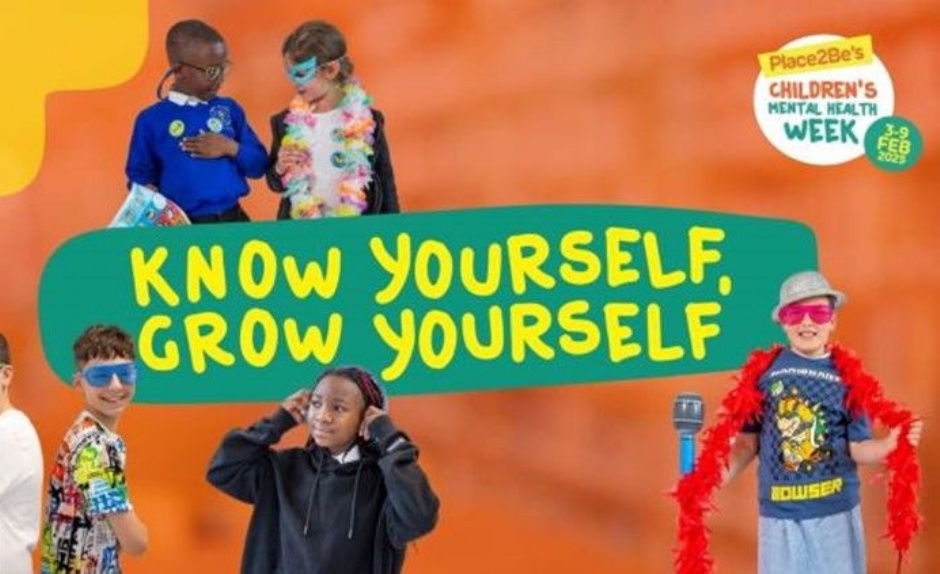Children's Mental Health Week 2025: How We Can Support Our Children's Well-being

Children's Mental Health Week 2025, taking place from February 3rd to 9th, is an important opportunity for us as parents to prioritise our children's emotional wellbeing. Organised by the charity Place2Be, this year's theme, "Know Yourself, Grow Yourself," encourages children to develop self-awareness, resilience, and emotional intelligence. As parents, we can play a crucial role in nurturing these skills at home.
The 2025 theme emphasises the importance of children understanding their own emotions, recognising their strengths, and identifying areas for personal growth. This self-awareness is key to building resilience and developing a healthy mindset. As parents, we can support our children in this journey by creating a home environment where emotions are openly discussed and validated.
There are a number of things we can do at home to help our children engage with their own wellbeing:
1. Encourage Open Conversations About Feelings
- We could ask our children open-ended questions like, "How are you feeling today?" or "What made you happy/sad?"
- We could share our own emotions in an age-appropriate way to normalise talking about feelings.
- Validate their emotions by saying things like, "I understand why you feel that way," rather than dismissing their concerns.
2. Help Our Children Identify Their Strengths
- Celebrate their achievements, big or small, to build confidence.
- Encourage activities that align with their interests, whether it’s sports, arts, or problem-solving tasks.
- Use positive reinforcement, such as "I love how kind you were to your friend today!"
3. Teach Healthy Coping Strategies
- We could introduce relaxation techniques like deep breathing, mindfulness, or journaling.
- Encourage regular physical activity, as movement is beneficial for mental wellbeing.
- Promote creative outlets like drawing, storytelling, or music to express emotions constructively.
4. Limit Stress and Encourage Balance
- One of my favourites revolves around creating a balanced routine that includes time for play, learning, and rest.
- We should set realistic expectations and avoid overloading our children with excessive extracurricular activities.
- Ensure they get enough sleep, as rest is essential for emotional regulation.
5. Be a Role Model for Self-Awareness and Growth
- We can try to show our children that learning and growth are lifelong processes by sharing our own experiences of self-improvement.
- Practice self-care and stress management ourselves (easier said than done, if we’re honest) so they learn by example.
- Try to demonstrate resilience by handling challenges with a positive mindset (this takes practice, as it’s not just about positive thinking, but also about trying to see opportunities when challenges arise).
There are a number of resources for families to access which may help us learn more about emotions and wellbeing:
- Family Activities: Place2Be provides free online activities that help families engage in discussions about emotions and well-being.
- Parent Webinars: Many organisations offer free webinars on topics like anxiety management and emotional resilience in children. We are hosting our next Wellbeing Matters ‘Live’ session at school tomorrow morning. Please come along, even if you have not signed up!
- School Collaboration: We shall be speaking about wellbeing a lot at school during the course of next week, with a special focus on the topic in PSHEe and tutor periods.
Studies show that 1 in 5 children experiences a mental health challenge, yet many do not receive the support they need. By taking small, intentional steps at home, we can help our children develop a strong foundation for mental wellbeing.
Children's Mental Health Week 2025 is a great reminder that mental health should be nurtured just like physical health. By being present, listening, and equipping our children with tools to understand themselves, we can play a vital role in our children’s emotional growth.
For more information and free resources, visit Place2Be’s official website: Place2Be's Children's Mental Health Week - Official site
Craig Cuyler
Designated Safeguarding Lead/Director of Wellbeing/Head of PSHEe








